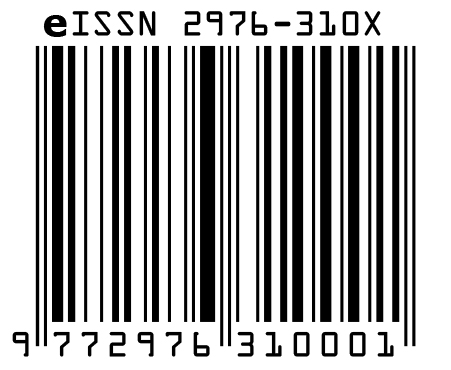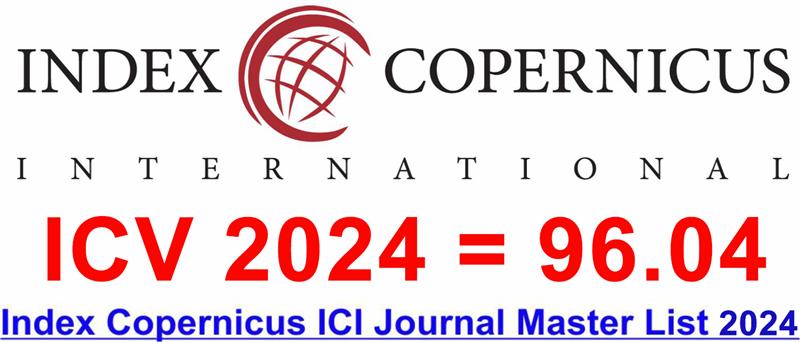An Appraisal of the Correlation between Cloud Computing Adoption and Science Teachers' Effectiveness in Nigerian Secondary Schools
DOI:
https://doi.org/10.60072/ijeissah.2024.v3i01.001Abstract
Over the years, education managers all over the world have been interested in investigating the relationship between the use of technology and its impact on teaching and learning. This study explores the relationship between cloud resource usage and teacher effectiveness among secondary school science teachers in Cross River state of Nigeria. The objectives include examining the extent of cloud resource usage, evaluating teachers' perceived effectiveness and identifying any correlation among these factors within the Calabar Education Zone. Using a quantitative, survey-based approach, data was collected from 150 teachers to measure the sample’s variable through a structured questionnaire and analyzed using frequency tables, mean standard deviation and Pearson’s correlation coefficient. The study found that there was moderate cloud resource usage and a strong correlation between cloud resource usage and teacher effectiveness. It was recommended that teachers should be adequately trained, and government should enhance the availability of cloud resources.
Keywords:
Cloud Computing, Nigeria, Secondary Schools, Science Education, Teacher EffectivenessReferences
Ali, A., & Alourani, A. (2021). An investigation of cloud computing and E-learning for educational advancement. International Journal of Computer Science & Network Security, 21(11), 216-222. DOI: https://doi.org/10.22937/IJCSNS.2021.21.11.30
Gloria, A., & Oluwadara, A. (2016). Influence of Mobile Learning Training on Pre-Service Social Studies Teachers' Technology and Mobile Phone Self-Efficacies. Journal of Education and Practice, 7(2), 74-79. https://eric.ed.gov/?id=EJ1089740
Akande, A. O., & Van Belle, J. P. W. (2013, October). ICT adoption in South Africa: opportunities, challenges and implications for national development. In IEEE International Conference on Electronics Technology and Industrial Development (pp. 23-24).
Alshwaier, A., Youssef, A., & Emam, A. (2012). A new trend for e-learning in KSA using educational clouds. Advanced Computing, 3(1), 81. https://www.researchgate.net/profile/Abdullah-Alshwaier/publication/276195798_A_New_Trend_for_E-Learning_in_KSA_Using_Educational_Clouds/links/6597dee66f6e450f19cdc1f5/A-New-Trend-for-E-Learning-in-KSA-Using-Educational-Clouds.pdf
Atakpa, A. O., Nsit, A., Immaculata, U. M. O. H., & Ikoh, N. F. CLOUD COMPUTING AND EFFECTIVE TEACHING OF CHILDREN: THE PROSPECT AND CHALLENGES. https://mail.globalacademicstar.com/download/article/cloud-computing-and-effective-teaching-of-children-the-prospect-and-challenges.pdf
Baharuddin, B., Ampera, D., Febriasari, H., Sembiring, M. A. R., & Hamid, A. (2021). Implementation of cloud computing system in learning system development in engineering education study program. International Journal of Education in Mathematics, Science and Technology, 9(4), 728-740. DOI: https://doi.org/10.46328/ijemst.2114
Blau, I., & Shamir-Inbal, T. (2017). Digital competences and long-term ICT integration in school culture: The perspective of elementary school leaders. Education and information technologies, 22, 769-787. DOI: https://doi.org/10.1007/s10639-015-9456-7
Cross River State Ministry of Education. (2023). Educational statistics report. Calabar, Nigeria: Government Press. https://education.crossriverstate.gov.ng/2023/
Darling-Hammond, L. (2017). Effective teacher professional development. Learning Policy Institute.
Davis, F. D. (1989). Technology acceptance model: TAM. Al-Suqri, MN, Al-Aufi, AS: Information Seeking Behavior and Technology Adoption, 205, 219
https://quod.lib.umich.edu/b/busadwp/images/b/1/4/b1409190.0001.001.pdf
Ercan, T. (2010). Effective use of cloud computing in educational institutions. Procedia-Social and Behavioral Sciences, 2(2), 938-942. DOI: https://doi.org/10.1016/j.sbspro.2010.03.130
Etim, P., Upula, B., & Ekpo, U. (2016). The Use of Cloud Computing Tools and Teachers Effectiveness in The Teaching of English Language In Cross River Tertiary Institutions. Equatorial Journal of Education And Curriculum Studies, 1(2). https://papers.ssrn.com/sol3/papers.cfm?abstract_id=2851481
Eze, S. C., Chinedu-Eze, V. C., & Bello, A. O. (2018). The utilisation of e-learning facilities in the educational delivery system of Nigeria: a study of M-University. International Journal of Educational Technology in Higher Education, 15(1), 1-20. DOI: https://doi.org/10.1186/s41239-018-0116-z
Gupta, P., Kulkarni, T., Barot, V., & Toksha, B. (2021). Applications of ICT: Pathway to Outcome-Based Education in Engineering and Technology Curriculum. In Technology and Tools in Engineering Education (pp. 109-142). CRC Press.
Helaimia, R. (2023). Cloud computing in higher education institutions: pros and cons. Int J Adv Eng Res Sci, 7, 132-141.
Kara, S., & Yildiz, Y. (2022). From a commodity to addiction: Are mobile phones valuable commodities or sources of addiction for freshman students?. Revista Amazonia Investiga, 11(56), 196-209.
Maimunah, Y. A. K., & Yakti, N. P. (2012). Konsep dan penerapan cloud computing untuk meningkatkan mutu pembelajaran. CSRID Journal, 4(3), 220-230.
Mell, P. (2011). The NIST Definition of Cloud Computing. NIST Special Publication, 800-145.
Ogunmade, T. O. (2005). The status and quality of secondary science teaching and learning in Lagos State, Nigeria. https://ro.ecu.edu.au/theses/86/
Olokoba, A. A., Abdullahi, A. M., & Omosidi, S. A. (2014). Impact of information communication technology (ICT) on the management and performance of secondary school teachers in Kwara State, Nigeria. International Journal of Education Learning and Development, 2(3), 60-67.
Osborne, J., & Dillon, J. (2008). Science education in Europe: Critical reflections (Vol. 13). London: The Nuffield Foundation.
https://efepereth.wdfiles.com/local--files/science-education/Sci_Ed_in_Europe_Report_Final.pdf
Akin, O. C., Matthew, F., & Comfort, D. (2014). The impact and challenges of cloud computing adoption on public universities in Southwestern Nigeria. International Journal of Advanced Computer Science and Applications (IJACSA), 5(8), 13-19.
Raja, R., & Nagasubramani, P. C. (2018). Impact of modern technology in education. Journal of Applied and Advanced Research, 3(1), 33-35.
























